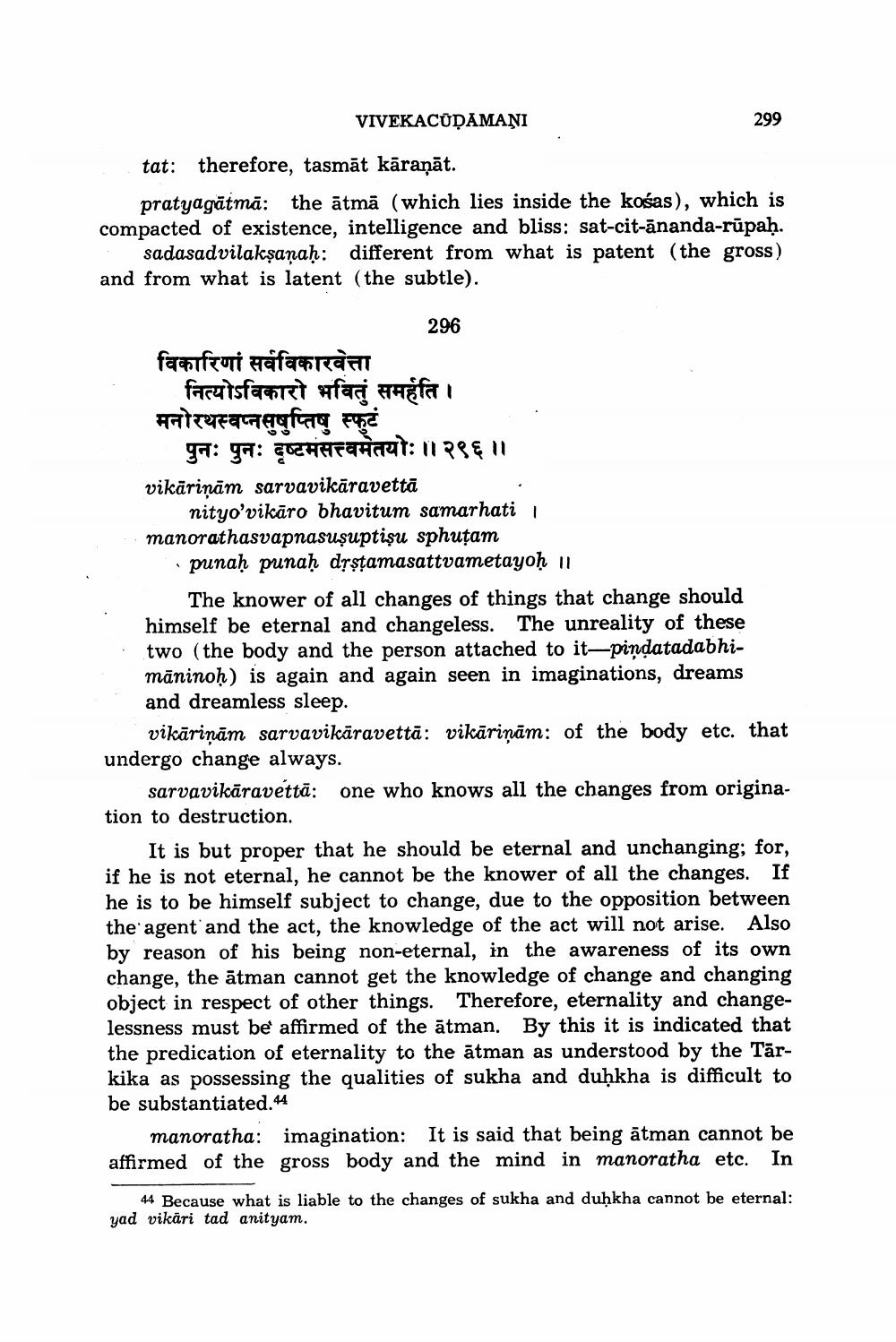________________
VIVEKACŪDĀMANI
299
tat: therefore, tasmāt kāraṇāt.
pratyagātmā: the ātmā (which lies inside the kośas), which is compacted of existence, intelligence and bliss: sat-cit-ānanda-rūpah.
sadasadvilaksanaḥ: different from what is patent (the gross) and from what is latent (the subtle).
296 विकारिणां सर्वविकारवेत्ता
नित्योऽविकारो भवितुं समर्हति । मनोरथस्वप्नसुषुप्तिषु स्फुटं
पुनः पुनः दृष्टमसत्त्वमेतयोः॥२९६ ॥ vikāriņām sarvavikāravetta
nityo'vikāro bhavitum samarhati manorathasvapnasușuptişu sphutam
punaḥ punaḥ dȚstamasattvametayoḥ 11
The knower of all changes of things that change should himself be eternal and changeless. The unreality of these two (the body and the person attached to it-pindatadabhimāninoh) is again and again seen in imaginations, dreams and dreamless sleep.
vikāriņām sarvavikāravettā: vikāriņām: of the body etc. that undergo change always.
sarvavikāravettä: one who knows all the changes from origination to destruction.
It is but proper that he should be eternal and unchanging; for, if he is not eternal, he cannot be the knower of all the changes. If he is to be himself subject to change, due to the opposition between the agent and the act, the knowledge of the act will not arise. Also by reason of his being non-eternal, in the awareness of its own change, the ātman cannot get the knowledge of change and changing object in respect of other things. Therefore, eternality and changelessness must be affirmed of the ātman. By this it is indicated that the predication of eternality to the ātman as understood by the Tārkika as possessing the qualities of sukha and duhkha is difficult to be substantiated.44
manoratha: imagination: It is said that being ātman cannot be affirmed of the gross body and the mind in manoratha etc. In
44 Because what is liable to the changes of sukha and duḥkha cannot be eternal: yad vikari tad anityam.




